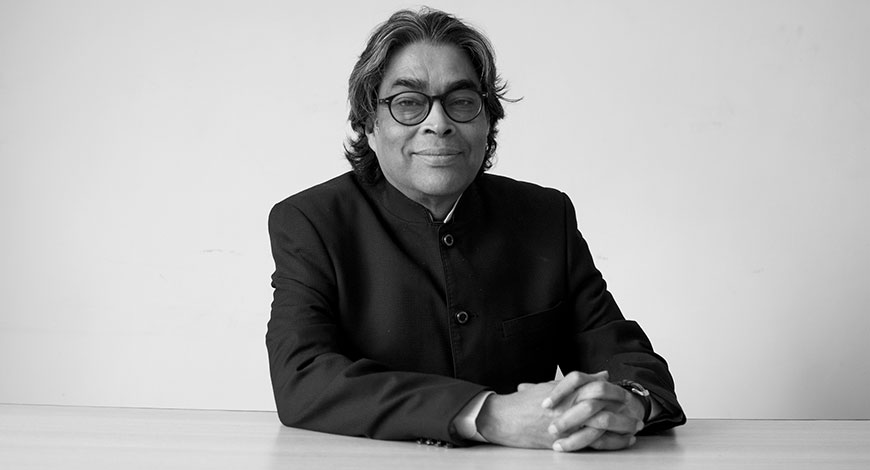"Public policy experts are needed not only in Delhi but in 29 states and 7 union territories", Dean of ISPP

Indian School of Public Policy (ISPP) is a public policy school founded by eminent leaders and philanthropists and aims to fulfil the need for a home-grown world-class program that prepares policy professionals of the future.
We catch up with Shubhashis Gangopdhyay, Dean of Indian School of Public Policy to talk about the importance of public policy learning and the skills needed for public policy leaders for the future.
Where did the need for learning in public policy arise from?
India is a society that is transforming itself. Public policy in a stable society and public policy in an emerging market economy are very different. There has to be more experimentation and a better understanding of the societal dynamics when designing public policy for an emerging economy. Add to that the fact India is a very diverse society with its youth having aspirations not seen among previous generations. Received wisdom alone will not suffice; much of the design of public policy will have to be contextual and practitioners of public policy need to be aware of behavioural responses of people in different contexts. An understanding of this will lead to policies that enable transformations rather than hinder them.
How important is public policy education for India?
Much of the recent Indian experience in public policy has been one of fire-fighting. We have tried to enact laws and implement policies that address specific issues as they crop up. We need to ask what type of society we want to be and then work out a path that takes us to that goal. This requires a change in approach- anticipating problems rather than waiting for them to happen and then scampering for band-aid solutions. Greater emphasis has to be laid on an understanding of the social and political dynamics of changing society so that policies can encourage human behaviour that benefits all. We are, after all, a democracy where citizens reign supreme. We are not a technocracy where experts implement engineering solutions to current problems. This difference in approach will be the defining characteristic of the new training in public policy.
How does education in public policy augur for a sound career in India? What are the challenges and opportunities in public policy?
We are a market economy within a federal structure. Post-1991, the central controls on industry, foreign exchange, technology transfer, and international trade have disappeared and market forces have started directly affecting how individuals fare. Much of the public policy action space has now moved to the states, rather than being in the hands of the central government. State governments need people trained in public policy. Even where the centre makes the policy, the implementation is in state hands. So suddenly, public policy experts are needed not only in Delhi but in 29 states and 7 union territories. So a career in public policy has many opportunities. The challenge is to remain relevant in one's context. And, this relevance can be attained only if economic entities affected by public policy are also on the same page as the policymakers. Thus corporates must appreciate the goals and mechanisms of public policy so that they can plan strategies in meaningful ways to work in tandem with public policy practitioners rather than countering them. This will mean that our students will have career prospects in businesses too, especially in their public affairs divisions.
What changes does the education system entail for preparing future leaders for the country?
Leaders must have open minds and be willing to take risks. The education system needs to encourage students to experiment with new ideas and this requires analytical minds that question past experiences. Simply ascertaining the best that has happened is not enough; doing better has to be the goal. Leaders cannot implement best practices; they must ring in change and ensure that society achieves new goals. The education system has to train analytical minds that are not simply a repository of received wisdom. Scholarship must be accompanied by introspection and analysis.
How important a role does curriculum play for public policy education. What factors were kept in mind while deciding the curriculum?
The curriculum is being designed in a way that trains students to address the needs of a desirable society- a society that meets the fundamental needs of a citizen enabling her to be productive and contribute towards achieving the society's goals. How does society ensure basic health and education for all; maintain, and may be even repair, the environment; access technology to improve the quality of life; manage public space in a way that includes all in their enjoyment; etc.? In other words, we go beyond fiscal deficit and GDP growth.
What skills or knowledge would make students industry-ready in public policy? Why have been we lacking in public policy and how will ISPP bring about a change?
ISPP has listed for itself a number of skills that are necessary and training in which will be imparted. These include soft skills like communication and consensus building, along with harder technical skills like strategic decision making and economic analysis of projects. The emphasis is on training students to be productive from day one of their careers. For this, we are working closely with business and government to ascertain the skill-sets they desire in their employees. Indeed, the people involved in setting up ISPP have been drawn from businesses, governments, and academics.

